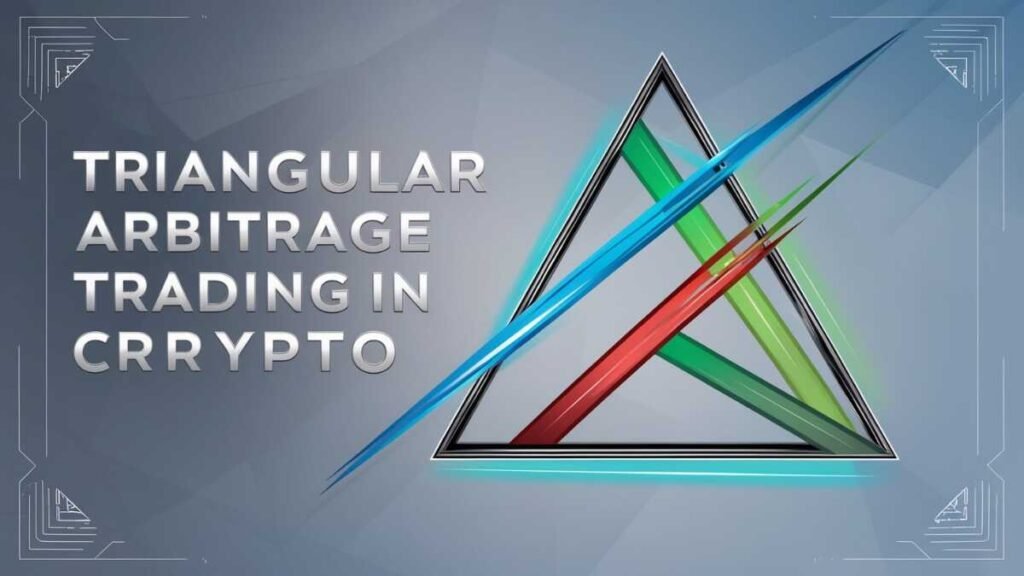
Arbitrage trading in crypto is one of the most interesting strategies that has attracted many traders to it. But what is arbitrage trading, exactly? Arbitrage trading is taking advantage of the price discrepancy for the same asset in different markets or exchanges. In crypto, where prices can change drastically between exchanges, arbitrage offers a way to make risk-free profits.
Quite understandably, arbitrage in crypto would hold much appeal. The presence of a great degree of interconnection within a regulated environment leads the market to price formation. By contrast, the crypto markets, though rapidly integrating, have traditionally tended toward relatively fragmented systems that provide scopes of low on a different exchange and selling high in yet another.
H2: Types of Crypto Arbitrage
Spatial Arbitrage
The most common is cross-exchange arbitrage. Suppose that, at Exchange A, Bitcoin goes at $40,000 while at Exchange B, it goes at $40,500. At this point, a trader can buy Bitcoins at the former and immediately sell them at the latter to collect the $500 difference, fees included.
Geographic Arbitrage
Geographical arbitrage is an extension of cross-exchange arbitrage in the sense that it considers exchanges that are in different countries. The price of a cryptocurrency will differ from one country to another because of differences in demand, regulations, and the general local market conditions. A trader might find that Bitcoin is cheaper on a European exchange than on an Asian exchange. Such gives an arbitrage opportunity.
H2: Triangular Arbitrage Trading in Crypto

Triangular Arbitrage Trading in Crypto Common Opportunities
The incident of triangular arbitrage commonly occurs when the market is inefficient. This may be a result of a sudden change in demand, a large buy or sell order, or perhaps the market just hasn’t corrected itself yet. Traders can monitor the price movements of multiple pairs constantly to find and exploit such opportunities.
H2: Statistical Arbitrage
Mean Reversion
This one, though an even more complicated strategy, does have at least a basis in mathematical model usage to estimate prices. Of the various foundational ideas used within statistical arbitrage is an idea named mean reversion idea which states that the price of any given asset will be such that over time, it tends to revert toward the historical average. Since that determines when a particular cryptocurrency is over or undervalued based on its price over its history, the traders will use this concept.
Pair Trading in Crypto
Pair trading is a very common type of statistical market. A strategy that takes a long position in one cryptocurrency while taking a short position in another, expecting that the price of the two should converge over time. For example, if Bitcoin and Ethereum typically move in tandem, and Bitcoin suddenly drops and Ethereum remains stable, a trader could short Ethereum and go long on Bitcoin, expecting the price of both to realign.
H2: Tools and Software for Crypto Arbitrage Trading
Crypto Arbitrage Bots
Most traders make use of crypto arbitrage bots to automate the process. In this way, traders will not miss an opportunity to benefit from the price discrepancy, even when monitoring markets 24/7. Such gives an arbitrage opportunity.
Tracking Price Differences
There are many tools that will enable the tracking of the fluctuation in price between different exchanges for a trader. There are sites like Cornmarket and Coin Gecko, which give real-time data on prices of cryptocurrencies on different platforms, and this will make it easier for traders to pick arbitrage opportunities.
Legal and Regulatory Considerations
Cryptocurrency legislation is different in different lands. It may be well permissible in one land but prohibited in another. Please research your local laws and seek an expert legal opinion to clarify compliance.
H2: Risk Management Strategy

Minimizing Slippage and Latency Problem
Slippage occurs when the price changes between the time you place an order and when it gets executed. Choosing exchanges with fast and reliable APIs can help reduce latency issues.
Dealing with Market Volatility
The volatility of cryptocurrency markets can work both ways, thus providing arbitrage traders with both opportunities and risks. A strategy will be needed, along with the ability to act rapidly if the market moves against you, to mitigate such volatility.
Liquidity Issues
The first important issue concerning arbitrage trading is liquidity. Without having enough liquidity on the trading exchange through which you’d sell the cryptocurrency, the trade order may not execute at the price you intended, which might result in reduced profits or losses entirely.
Regulatory risks
It has already been mentioned that regulatory risks are of significant importance to arbitrage traders. Since changes in regulations impact the availability of arbitrage opportunities and even the legality of your trades.
Conclusion
Crypto arbitrage can be a very profitable strategy, but not without its challenges. As attractive as the prospect of risk-free profits is, traders. Including regulatory risks, technological barriers, and market volatility.
FAQs
What is the minimum amount needed to start arbitrage trading in crypto?
The minimum amount will depend on the exchanges and the type of arbitrage you are pursuing. However, it is advisable to start with at least a few hundred dollars to cover fees and ensure meaningful profits.
Do I have to pay tax on crypto arbitrage?
Yes, all profits generated from crypto arbitrage are generally considered taxable income. It is always important to keep a record of your trades and seek expert advice.
How do I avoid getting scammed in crypto arbitrage?
Do not fall for scams by only trading on reputable exchanges, using trusted arbitrage bots, and never falling for offers that sound too good to be true.
Can beginners participate in crypto arbitrage trading?
Yes, beginners can engage in crypto arbitrage trading, but they should begin small and educate themselves on the risks and strategies involved before committing significant funds.
Which are the best cryptocurrencies to trade in arbitrage?
The best cryptocurrencies for arbitrage are mostly those that have high liquidity and big differences in price in the different exchanges. Bitcoin, Ethereum, and Ripple are usually the first choice due to their vast presence and volume.
Read More: DeSo Crypto





